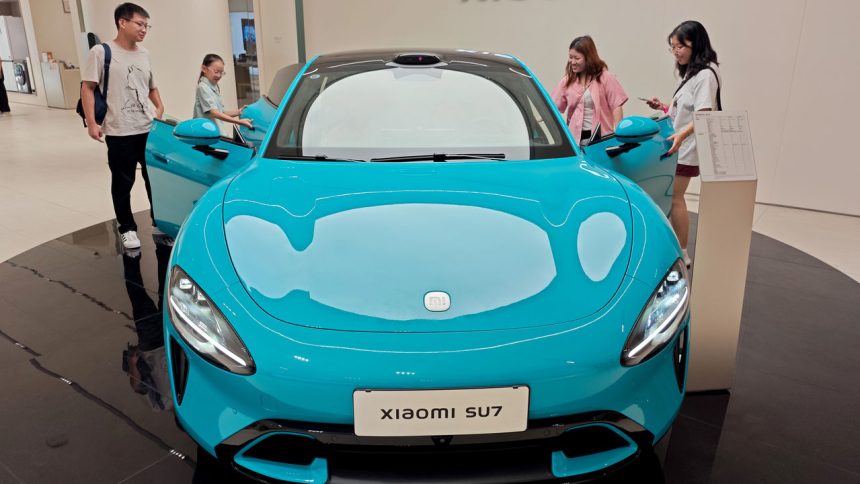The Rise of Chinese Tech Giants in the Automotive Industry
Introduction to the Shift
Chinese technology leaders like Baidu, Huawei, and Xiaomi have successfully ventured into the automotive sector, showcasing a remarkable transformation within this competitive landscape. Their innovative approaches are redefining how vehicles are developed and integrated with cutting-edge technology.
Baidu’s Leap into Auto Tech
Baidu has not merely entered the automotive scene but is significantly influencing it through its advancements in autonomous driving technologies. By leveraging its expertise in artificial intelligence and data processing capabilities, Baidu is at the forefront of creating intelligent transportation solutions. With partnerships established with various automakers, they’ve unveiled multiple projects focused on smart vehicles designed to enhance safety and efficiency.
Noteworthy Developments
Recent efforts have culminated in notable initiatives such as Apollo Go—an ambitious robotaxi service that has already launched successful trials across major Chinese cities. Statistics from 2023 demonstrate that this service recorded an impressive increase in ridership by 50%, highlighting growing consumer acceptance of autonomous ride-sharing options.
Huawei: Innovating Mobility Solutions
Huawei’s foray into the automobile industry centers around developing smart vehicle technologies powered by robust telecommunications infrastructure. Recognizing the potential for connectivity in enhancing driver experiences, Huawei is focusing on integrating IoT (Internet of Things) features into modern cars.
Strategic Collaborations
In recent collaborations with established car manufacturers, Huawei aims to integrate its HarmonyOS platform into vehicle systems—transforming traditional automobiles into connected devices that can communicate seamlessly with other tech ecosystems. The introduction of these smart features aligns well with current trends where vehicle buyers increasingly prioritize connectivity.
Xiaomi’s Vision for Electric Vehicles
Xiaomi has also announced its arrival as a player in electric vehicles (EVs), drawing on its extensive experience within consumer electronics. Their strategy involves producing cost-effective yet high-quality electric cars appealing to price-sensitive consumers who seek modern features without exorbitant costs.
Current Initiatives
As part of its commitment to sustainability and innovation, Xiaomi revealed plans to produce EVs that will incorporate advanced battery technology aimed at extending range and reducing charging times significantly by 2025—a prospective game-changer as attention shifts toward eco-friendly transport solutions.
Conclusion: A Strong Future Ahead for Chinese Automakers
With these development trajectories showcased by Baidu, Huawei, and Xiaomi—the future seems promising for China’s automotive sector as it embraces technological innovations alongside traditional manufacturing practices. As they continue progressing down this path of disruption within mobility solutions globally while aligning products closely with consumer demands; expectations mount regarding their cemented positions not just regionally but throughout international markets too.






